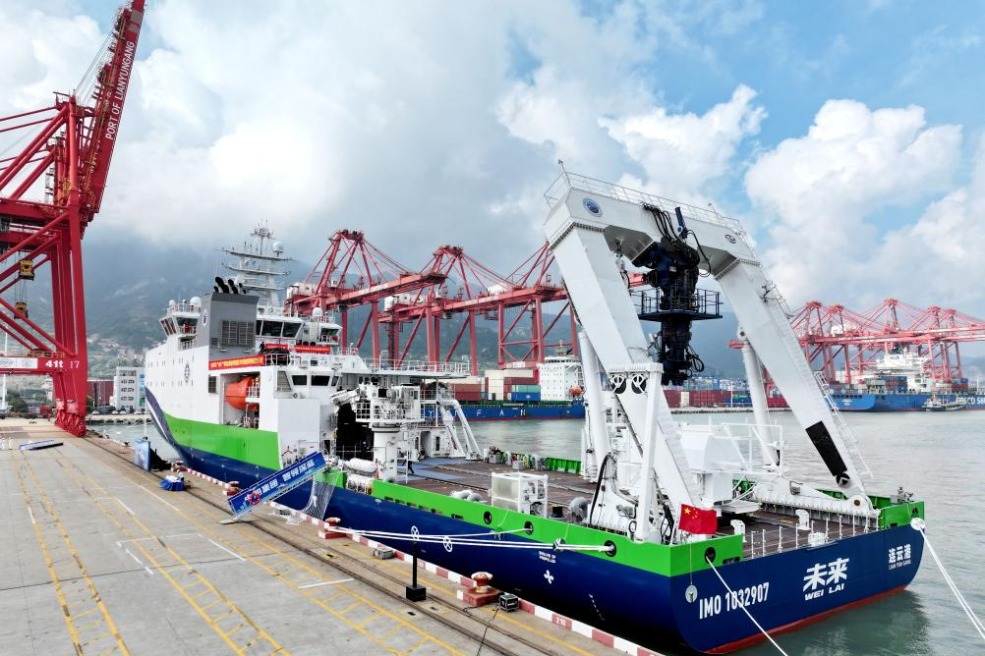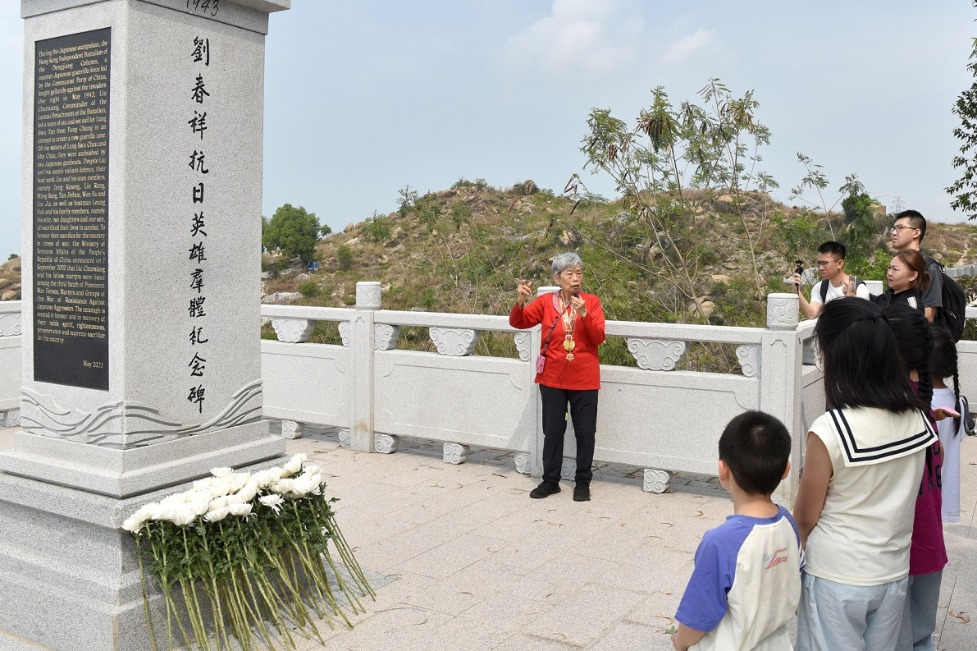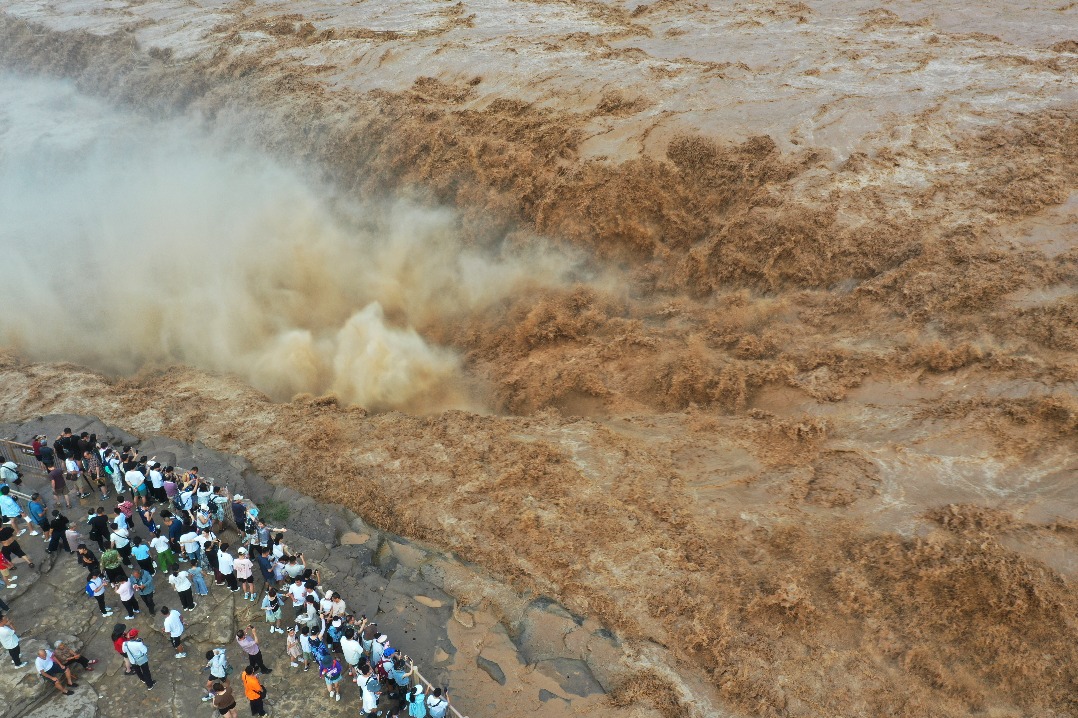China steps up pursuit of fugitives abroad


China has maintained momentum in pursuing fugitives who are wanted in the country on corruption charges and will continue to enhance international cooperation and coordination to hunt down such individuals who are hiding abroad, experts said.
Between January and November 2023, China brought back 1,278 fugitives, including 140 Party members and government officials, and 48 subjects against whom Interpol Red Notices had been issued. Embezzled funds amounting to 2.91 billion yuan ($406.7 million) were recovered in the process, the Central Commission for Discipline Inspection and the National Supervisory Commission said.
The Central Anti-Corruption Coordination Group's Fugitive Repatriation and Asset Recovery Office launched the Sky Net 2023 operation in March last year, an extension of the Sky Net special operations that began in 2015 to apprehend corrupt officials who had fled overseas.
Since then a comprehensive mechanism for the pursuit of fugitives, preventing of corrupt individuals from fleeing, and recovering of related funds has been established.
Over the years, China has consistently increased its efforts in fighting corruption and intensified the overseas pursuit of fugitives. For years, China has been bringing back fugitives through international law enforcement cooperation.
Zhuang Deshui, deputy head of the Clean Government Research Center at Peking University, said the outcomes of the fugitive pursuit exercise showed the synergy between different central departments. The authorities have employed legal means, especially international legal mechanisms, to bolster efforts in pursuing and apprehending fugitives and recovering the stolen assets.
"The outcomes of these efforts reflect the commitment of the central authorities, sending a strong signal that corrupt officials, no matter where they flee, will be brought back to face justice," he said.
The focus has been on 100 individuals against whom Red Notices were issued by the Interpol China National Central Bureau in April 2015, and those identified as fugitives recently. Some of them turned themselves in following effective measures taken by anti-graft authorities.
In June, Guo Jiefang became the first of the 100 fugitives on the Red Notice to surrender to Chinese authorities since the 20th National Congress of the Communist Party of China in 2022.
Guo, 70, was a police officer at the Guangzhou Public Security Bureau's traffic department before fleeing overseas in March 2000 when she was found to have allegedly accepted bribes along with some others. In December 2007, Interpol issued a Red Notice against her. Guo went on trial for taking bribes of more than 4.87 million yuan in November in Guangzhou, capital of Guangdong province.
Yang Weidong, a professor at the Institute of Rule of Law at China University of Political Science and Law, said the main reason many fugitives have voluntarily returned to the country in recent years is the increased pressure they have faced from China's enhanced overseas pursuit efforts and international cooperation, leaving them nowhere to hide.
The intensified efforts have left the criminal suspects with the option of either continuing their hopeless fugitive life or giving themselves up to authorities. This intangible deterrent effect is more powerful, he said.
"The robust pursuit efforts have made potential corrupt officials understand that it is almost impossible to escape from punishment by law, thus discouraging them from engaging in corruption. It also prompts those already involved in corruption to surrender promptly," he said.
The Second Plenary Session of the 20th Central Commission for Discipline Inspection held in January last year highlighted the deepening international anti-corruption cooperation and the continued implementation of the Sky Net operation.
The session also stressed on the intensified crackdown on money laundering associated with corruption and the pursuit of illicit funds that have been transferred abroad. Authorities at all levels were asked to step up efforts to address challenges related to asset tracing, freezing, confiscation and repatriation.
The third plenary session of the CCDI is scheduled to be held from Monday to Wednesday in Beijing.
According to the Supreme People's Court, as of October 2023, China had entered into 171 bilateral judicial assistance treaties with 83 countries and joined nearly 30 international conventions related to judicial assistance and extradition, with cooperation covering more than 130 countries.
Zhuang noted that China has consistently employed diplomatic and cooperative approaches, including law enforcement and judicial cooperation, to combat transnational crime and pursue fugitives. However, there are various challenges involved in overseas pursuits.
"While Chinese law designates fugitives as corrupt individuals or those involved in duty-related crimes, some countries may refuse to acknowledge these designations and apply double standards. Additionally, some countries cite China's use of the death penalty as a reason to refuse extradition and deliberately obstruct pursuit efforts," he said.
Recovering corrupt assets is more challenging since some countries are unwilling to hand over such assets and profits to China, or they set conditions that are difficult to meet, Zhuang said.
Some countries may interfere with international cooperation against corruption due to their own interests, and some even thwart China's pursuit and recovery efforts for their own narrow ends, he said.
Since the 18th Communist Party of China National Congress in 2012, China has advanced national legislation against corruption, revamped laws and regulations for the pursuit of fugitives, and facilitated the signing of extradition and judicial assistance treaties with more countries. The anti-corruption international pursuit and recovery system has been further improved.
In March 2018, the Supervision Law took effect, explicitly designating the National Supervisory Commission to coordinate and oversee international anti-corruption cooperation. Following the implementation of the Supervision Law, the amended Criminal Procedure Law, which came into effect in October 2018, established a system for criminal trials in absentia, forming another legal deterrent for fugitives abroad.
The Law on Foreign Relations, enacted on July 1 last year, emphasizes deepening and expanding mechanisms for international law enforcement cooperation and improving judicial assistance systems to promote international cooperation in law enforcement and the fight against transnational crimes and corruption.





































